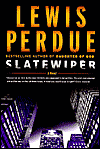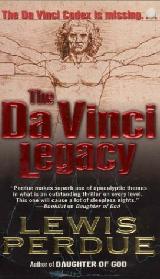Redefining the Meaning of a "Killer Wine"
This post is about a real wine from a Napa Valley estate which may or may not exist and whose proprietor may or may not be chairman of Defense Therapeutics but who is definitely running for president in 2008 (see video of announcement).
The $25 a bottle of Xantaeus – a small-production Napa Valley wine -- is a classic Bordeaux blend of cabernet sauvignon, merlot and petit verdot grapes from prized vineyards in the trendy Rutherford and Stags Leap appellations.
You can buy the small-production wine online (castellodavinci.com), or at a fortunate few and very elite wine stores and restaurants in California's wine country.
But Castello Da Vinci, may or may not be the lavish estate atop a volcanic knoll along the Silverado trail whose owner may or may not be former Army General Clark Braxton who announced his candidacy for President Wednesday night at a gathering in Sonoma Valley.
The 150-plus people gathered at Cline Cellars sipped the first release of Xantaeus 2003, noshed on a lavish spread of wine country food and. listened to Braxton as he stood Patton-style in front of a giant American flag. He told the attentive crowd that Democrats and Republicans had failed the nation and that his independent presidency was vital if the country were to have "a future worth living."
That may or may not be true.
War Hero Braxton may or may not have sustained a head wound in Vietnam, but that did not matter to the people who lined up after the speech to grab one of his campaign buttons and to purchase case-lots of the rare Xantaeus wine they had tasted with the hors d'ouvres.
And to buy signed copies of my "investigative thriller," Perfect Killer which features General Braxton who may or may not exist and his estate which may or may not exist and his Xantaeus 2003 red wine which certainly does exist in a very tasty space of reality.



"I know this is a bit off-topic, but if you see what Sony did with the new DRM fiasco, then it's very easy to understand all the underhandedness that Random House are displaying. It seems that Bertelsmann got a finger in the pie with everything that's shady."